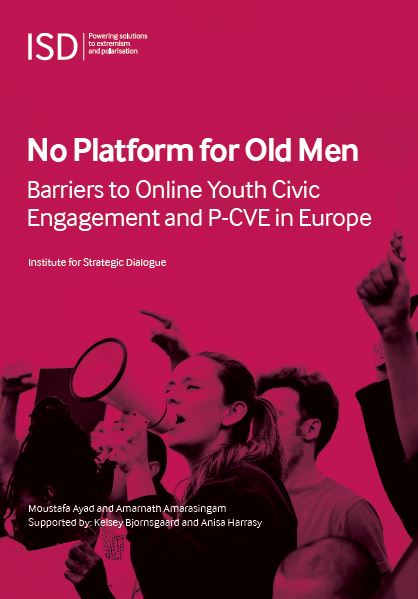No Platform for Old Men, Barriers to Online Youth Civic Engagement and P-CVE in Europe

By Moustafa Ayad and Amarnath Amarasingam and supported by Kelsey Bjornsgaard and Anisa Harrasy
Through the Youth Civil Activism Network (YouthCAN) programme our teams have been working with young people who consider themselves civically engaged, and therefore, “activists,” and are interested in preventing and countering violent extremism in their communities. As part of this programming, and with the support of the United States Embassy in Belgium, YouthCAN teams in 2018-2019 played a central role in resourcing and supporting 57 young activists from 14 countries across Western and Eastern Europe.
ISD assisted them in understanding the contextual challenges of extremism across Europe, as well as helping them design campaign strategies for preventing and countering violent extremism online. This capacity-building effort was both based on peer-to-peer support networks, as well as ISD-practitioner mentorship with all aspects of the campaign design, development and action phases.
As a follow-up to this capacity-building effort, and the launch of the campaigns across a number of social media platforms, ISD sought to understand the motivations of a subset of these young, European activists. It also looked at barriers to youth civic engagement and involvement
in preventing and countering violent extremism.
This report will present the findings of the survey sample of activists that worked on campaigns during the past year, as well as make broad-based practice and policy recommendations for policymakers and practitioners at the local, national, regional and international levels.
